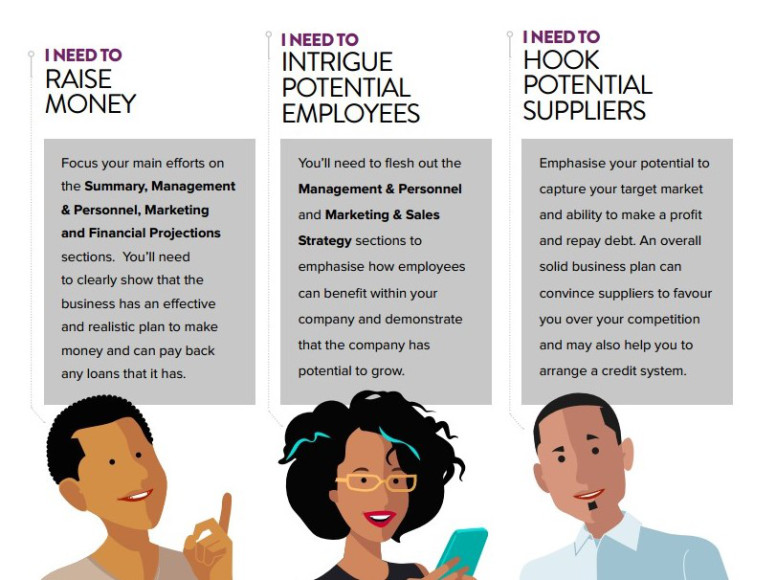Ah! The ever so important Business Plan! In our last post we delved into the importance of a Business Plan for Music Professionals, and provided you with a template—compliments the recently held Music Business Seminar in Barbados by ACCS, COSCAP and CDB—which you can utilize as you create your very own business plan.
Without doubt a business plan is vital to your music success and proves an essential tool which will assist you propel your music career and business further. It’ll come in super handy when you approach lenders and investors in your attempts to seek to build the capital needed for various business ventures. It’ll help you outline to any employees you may hire, the vision and goal of the company, and what’s needed from them to ensure your business continues to thrive.
But more so, a business plan is for you, says Barbados Investment & Development Corporation (BIDC), noting that; “Going through the process of planning, researching and laying out all aspects of the business gives you a much clearer idea of the business itself and your role and responsibility as owner. It also allows you to determine if the business in its current form can work and if it will be profitable in the short or long run.”
Yes creating a business allows you to gain necessary insight, economically, practically and otherwise, which will allow you to make carefully selected and informed decisions. After all without an understanding of the music business and the market which you plan on targeting, you’ll pretty much be making decisions and spending your limited resources (financial and otherwise) BLINDLY!—with hit or miss results. Can you really afford that? Or would it not be better to take the time out to create a business plan for your music career; which you can of course tailor as the months and years roll on, to ensure continued success?
So let’s jump right in! First click HERE to review the previously provided template which outlines what you should include in your business plan.
Now while all of these areas area, dependent on your overall goal, you should more on certain aspects. As a guide, please see below excerpt from BIDC’s Business Plan workbook.

Let us now zone in, in more detail, on a few of the areas which should be included in your business plan.
The Executive Summary
BIDC explains that the executive summary of your business plan should essentially be a “bite-sized version” of your entire business plan, which provides the reader with an overview of who you are, what you plan on doing, how you plan on doing it and why.
If you’re looking to raise money, BIDC says your executive summary should indicate how much money you’re seeking.
The executive summary should be short no longer than a page, and should seek to intrigue your reader. Remember that in most cases investors first review the summary to determine whether it’s worth reading the rest of the plan. So you want to have an engaging, informative and appealing summary.
According to BIDC, your summary should cover key points and issues relating to:
- The business and its product
- B) The market factors and opportunities
- C) The financial needs and projections
- D) Any special research results or technology considerations associated with the venture.
It’s important to note that although you will place your executive summary at the start of the business plan, considering that it is meant to provide an overview of the entire plan, you’ll want to write it last, using information from the other areas of your plan.
Company Summary/Business Data
As noted in our previous post, the company summary or business data section of your plan will discuss how your company was formed—for example whether it is a sole proprietorship or a partnership—as well as provide details of profit sharing.
Of uttermost importance in this section will be inclusion of the business’ goals and objectives.
BIDC explains that your goals will state what you plan to achieve, while your objectives will outline how you plan to achieve them. Your company objectives should therefore be SMART–specific, measurable, achievable, realistic and time bound, advises BIDC. This will help you to determine if they are working.
BIDC recommends breaking your objectives down into short term objectives which will be achieved within 1-3 years; medium term objectives, achievable within 3-5 years; and longer term goals, beyond the next five years.
Market /Industry Analysis
Conducting an Industry/Market Analysis for your business will definitely provide eye-opening for you.
BusinessDictionary.com explains that a market assessment is designed to provide you with an idea of the complexities of your industry. It involves reviewing the economic, political and market factors which will influence the way the industry develops.
When you conduct your music industry analysis BIDC notes that you should seek to gain an understanding of, and describe the business environment in which you operate.
For example you may want to consider factors such as; is the music market expanding? Are music professionals earning more? What are the new music business trends which are emerging?
Based on information from BIDC we believe you should consider factoring some of the following In your market analysis:
- How is the music industry structured;
- Is it currently easy to get into and succeed in the music industry
- Who is the market leader?
- What makes him/her/them the market leader?
Additionally BIDC says your market analysis should include a competitor study. Here you will want to identify your three primary competitors and state what makes you stand out from your competitors.
We also came across an extremely helpful article from investopedia.com which gives more insight into conducting and writing the industry analysis. As per Investopedia.com, in your industry analysis you should include, an industry overview; profit opportunities; technology; legal, economic and political factors of this industry; logistics and opportunities. Access the investopedia.com article HERE
Financial Plan
In this section BIDC says you should clearly describe the financial requirements of your business and yout plan to use any acquired funds. The following should be detailed:
- How much money to you need to start your business and achieve your goals o
- How much money will you need to borrow from external sources? (Friends and family, credit union or bank)
- If you need a loan do you own any assets that could be used as collateral? (Such as property, vehicles or equipment)
- How soon would the loan be needed?
- How long would it take for your business to repay the loan?
Additionally BIDC notes that your financial plan should include a forecast which shows where your business intends to be financially in the near future.
“It should demonstrate the potential viability of your business. These projections should be based on your market research findings and are crucial in helping you to decide how much funding your business really needs. If you’re looking to secure a loan, projections also help lending agencies to determine whether to invest in your business or not.” says BIDC.
Your Income Statement, Cash Flow and Balance Sheet will assist in providing a financial forecast.
So it now time to get started on your music plan! Click HERE to download the full Business Plan Workbook from the Barbados Investment & Development Corporation (BIDC); a very detailed guide which will assist you in putting together an well-written, thorough business plan.
Photo Credits
Photo 1 - Photo retrieved from http://www.musicindustryhowto.com
References:
Barbados Investment & Development Corporation (BIDC) (n.d..) “Business Plan Workbook for Students.”
http://www.businessdictionary.com/definition/industry-analysis.html
http://www.investopedia.com/university/business-plan/business-plan4.asp#ixzz4FtvRIMrQ












Thank you! Your submission has been received!
Oops! Something went wrong while submitting the form